
Movie land
From Stepford Wives To Mystic Pizza
A new, lush book by actor/writer Illeana Douglas takes us on a film journey through Connecticut.
Illeana Douglas has two great loves: movies and Connecticut, her home state. In October 2023, the actress-producer-author (of the wonderfully quirky memoir I Blame Dennis Hopper) poured her twin passions into a new book: Connecticut in the Movies: From Dream Houses to Dark Suburbia.
Douglas has discovered over 200 movies with Connecticut associations, nearly half of which she considers in her book. The connections can be strong (Christmas in Connecticut) or slight. (The bell that rings when an angel gets its wings in A Wonderful Life was made by the Bevin Brothers bell company in East Hampton, CT. That’s it. That’s the whole connection).
But in so many of these movies, the setting has a great deal to say about a certain ideal American life and the people who strive for it. (Connecticut ranks in the top three states for millionaire households per capita.) Often, too, Connecticut movies speak of a dark undercurrent of that life, of troubles brewing underneath the glossy surface. Think The Ice Storm. Think Stepford Wives.
As a cinephile and film historian—it is perhaps no coincidence that she and Martin Scorsese were in a relationship for almost a decade—Douglas writes about movies with an incisive and critical eye. But there is also great affection, even joy.
Digital Party spoke with Douglas over Zoom this winter as she was snowed in in her 18th century Connecticut farmhouse—or at least the parts available to her in a hellish renovation that would rival one of her favorite Connecticut films, Mr. Blandings Builds His Dream House.

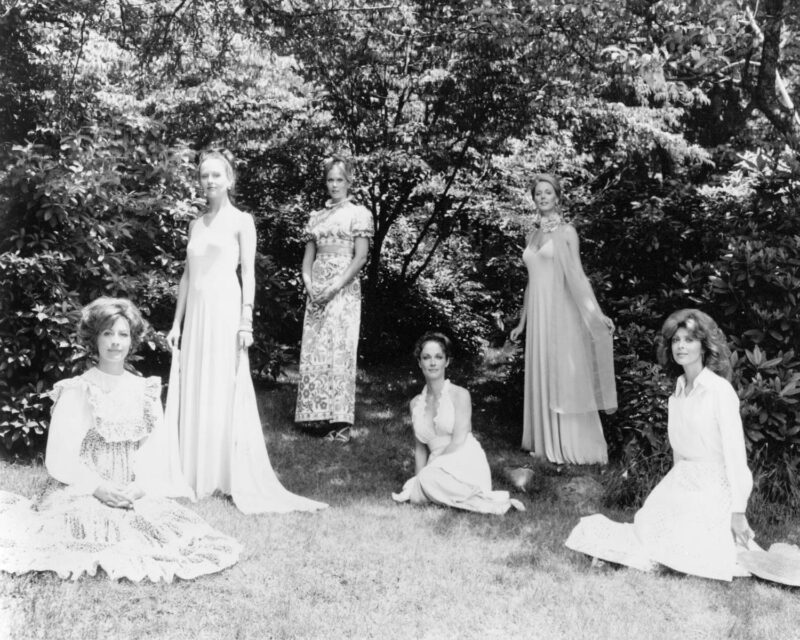
Digital Party: Why did you want to write about Connecticut movies?
Illeana Douglas: Nobody had ever tackled the subject. I mean, we know New York has an identity. Long Island, New Jersey, Boston . . . but Connecticut really lacks an identity. And yet it’s used again and again in films, usually to connote a certain type of wealth and character.
DP: You have a great way of grouping these movies: Silent Movies, Country Living, Christmas, Dark Suburbia . . . Suburban Sex Comedies
ID: There are so many that take place in Connecticut! People drinking too much, a lot of nudge, nudge, wink, wink, sleeping with each other. Sex comedies reveal the cracks in society around the time they were made. The plots of so many movies in the 1950s (like Rally ’Round the Flag, Boys) were men that were in loveless marriages in New York City, who found the girl of their dreams living in Connecticut.
Then, in the 1960s, suburban life was stifling, and the men found their freedom falling in love with someone back in the city. Was there a loosening up of rigid New England morality as more people from the entertainment industry moved here? Or was the entertainment industry satirizing immorality with its portrayal of the suburban bourgeoisie? George Axelrod, the screenwriter of Breakfast at Tiffany’s, summed up the era of suburban sex comedies this way: “I like to see rich people saying witty things and screwing.”
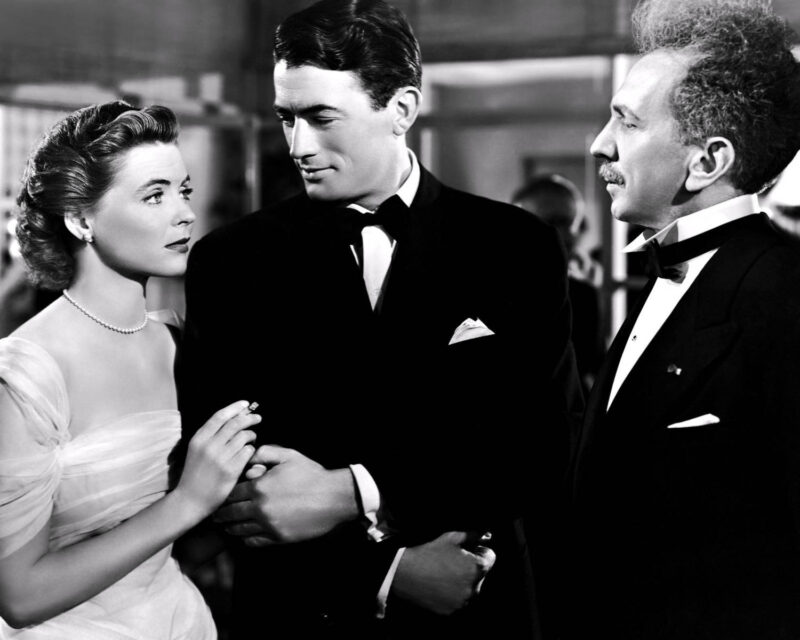
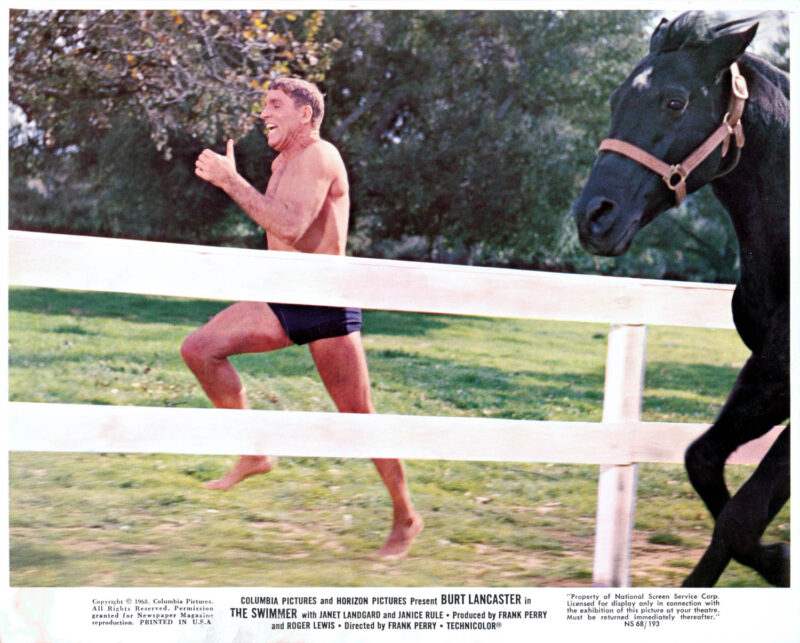
DP: Since we’re in the throes of awards season, we’d like you to be a one-woman Academy of Connecticut Film, and select the honorees.
Best Screenplay and Best Director?
ID: Gentleman’s Agreement. In the movie a reporter, played by Gregory Peck, identifies as Jewish to expose anti-Semitism in New Canaan and Darien. We get into a movie like this, and we begin to see the cracks in suburban life. It’s a movie about keeping people out.”
DP: Best Actor?
Burt Lancaster for The Swimmer. Lancaster jokingly called it “Death of a Salesman in swim trunks.” It’s beautiful, flawed, but about how much that can seem perfect is a sham.
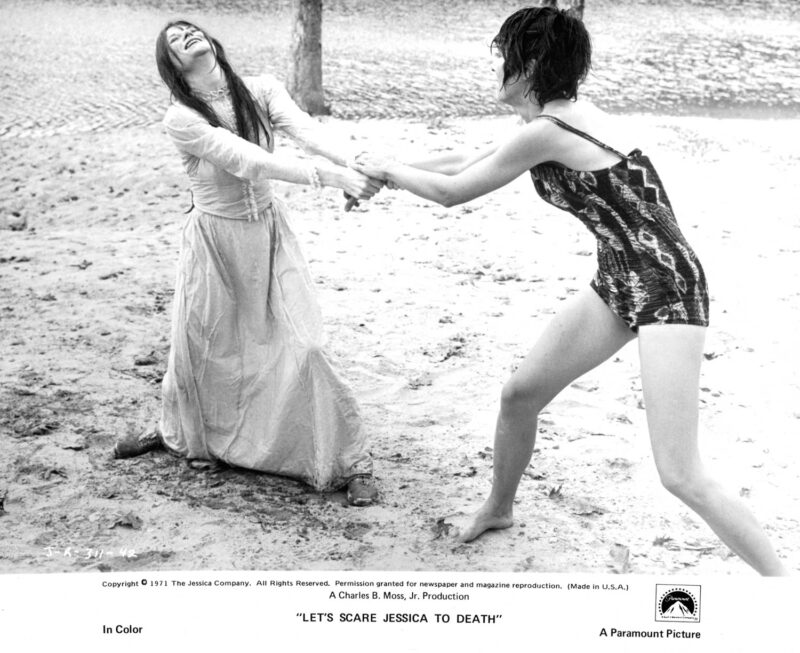
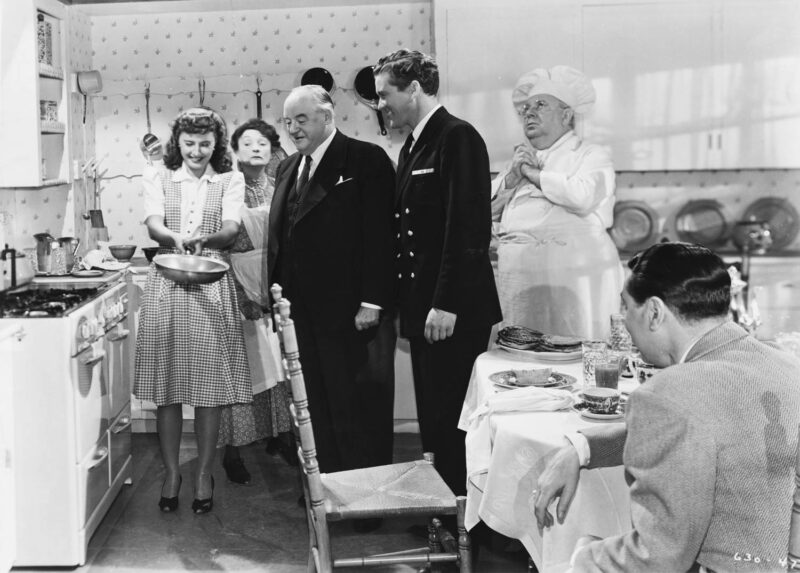
DP: Best Horror Film?
Let’s Scare Jessica to Death. 1971 .The original title of this film was It Drinks Hippie Blood. Guess the filmmakers didn’t want to give up too much of the plot in the title. It was part of a genre known as “folk horror,” in which people move from the city to the country, hoping to find peace and quiet, but instead find themselves in the middle of strange happenings. Lots of locals were recruited to play zombies.
DP: Best Comedy?
ID: Mr. Blandings Builds His Dream House, hands down. Absolutely.
It’s the beginning of this creation of suburbia, the idea of not just living away from the rat race, but living in “the right place.” And so the movie created the idea of “superior living.” And this was not accidental because New Milford was filled with people like Henry Luce and Eric Hodgins, the writer of Mr. Blandings and Dory Sherry, and all sorts of people who . . . now we would call them the liberal elite, but they were also the tastemakers of New York.
It blazed the way for Tom Hanks in The Money Pit and Nathan Lane in Mouse Hunt. The role of Bill Cole was played by Douglas’s grandfather (and mentor), the two-time Academy Award winner Melvyn Douglas.
DP: For Best Indie Film, How about The Green, starring Illeana Douglas?
ID: <laughing> I can’t vote for myself.


Hero photo of The Stepford Wives by Pictorial Press Ltd / Alamy Stock Photo



